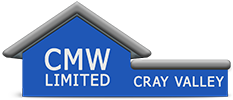
Introduction
Basket trays stand out as a reliable and versatile cable management solution. These trays, also known as cable trays, are widely used to support and organize cables in various industries, from data centres to manufacturing plants. While the basic concept of a basket tray is straightforward, the choice of matting can significantly impact its performance and functionality. This blog post will explore specialized basket tray matting, its importance, types, and critical considerations for optimal usage.
Understanding Basket Trays
Before diving into the nuances of matting, it's crucial to grasp the fundamental purpose of basket trays. These wire mesh trays are designed to support and route cables in an organized manner, preventing tangling and ensuring easy maintenance. They are commonly made of steel, stainless steel, or aluminium, offering durability and strength to withstand the weight of cables.
Importance of Specialized Basket Tray Matting
While the choice of material for the tray itself is essential, the matting plays a vital role in enhancing the system's overall functionality. Specialized matting offers several advantages, including:
Cable Protection
Specialized matting provides a protective layer for cables, preventing wear and abrasion. This is particularly crucial when cables are exposed to harsh conditions or heavy machinery.
Electrical Insulation
Some specialized matting options offer electrical insulation, safeguarding cables and equipment from potential electrical hazards. This is especially important in industries where electrical safety is a top priority.
Anti-Slip Properties
Anti-slip matting can be crucial in environments with high foot traffic or where maintenance personnel need access to cables. It enhances safety by reducing the risk of accidents caused by slipping.
Corrosion Resistance
Specialized matting made from corrosion-resistant materials adds longevity to the basket tray system, making it suitable for outdoor or corrosive environments.
Types of Specialized Basket Tray Matting
Rubber Matting
Ideal for providing cushioning and protection, rubber matting is known for its durability and flexibility. It is resistant to wear, tear, and chemicals, making it suitable for various industrial applications.
PVC-Coated Matting
PVC-coated matting offers excellent corrosion resistance and electrical insulation. It provides a smooth surface that is easy to clean and maintain, making it suitable for cleanroom environments.
Fiberglass Matting
Fiberglass matting is lightweight yet strong and durable. It offers high resistance to corrosion and can withstand extreme temperatures, making it suitable for demanding industrial settings.
Anti-Static Matting
In environments where electrostatic discharge (ESD) is a concern, anti-static matting helps dissipate static electricity, protecting sensitive electronic equipment and components.
Critical Considerations for Choosing Matting
Environment
Consider the specific environmental conditions, such as temperature, humidity, and the presence of corrosive substances, to choose matting that can withstand these factors.
Cable Types
Different cables have varying requirements. Consider the types of cables being used and choose matting that provides the necessary protection and support.
Regulatory Compliance
Ensure that the chosen matting complies with industry standards and regulations, especially in sectors with stringent safety and quality requirements.
Maintenance Accessibility
Choose matting that allows maintenance personnel easy access while ensuring the safety of anyone working around the basket tray system.
FAQs
What is the primary purpose of basket trays in cable management?
Basket trays are designed to support and organize cables systematically, preventing tangling and facilitating easy maintenance in various industries.
Why is specialized matting essential for basket trays?
Specialized matting enhances cable protection, offers electrical insulation, provides anti-slip properties, and ensures corrosion resistance, thereby optimizing the functionality of the basket tray system.
What types of materials are commonly used for basket trays?
Basket trays are typically made of steel, stainless steel, or aluminium due to their durability and strength, essential for supporting the weight of cables.
How does anti-static matting benefit cable management in industrial settings?
Anti-static matting dissipates static electricity, safeguarding sensitive electronic equipment and components from electrostatic discharge (ESD) in environments where ESD is a concern.
What considerations should be considered when choosing specialized matting for basket trays?
Factors such as environmental conditions, cable types, regulatory compliance, and accessibility for maintenance personnel play a crucial role in selecting the most suitable matting for basket trays.
Conclusion
The choice of specialized basket tray matting is crucial for optimizing cable management systems. By considering the specific needs of the environment, cables, and regulatory requirements, one can elevate the performance and longevity of basket tray systems, ensuring a reliable and safe cable organization solution.
If you want to take a closer look at our range of Cable Matting, click here. If you want to contact or find out more about this blog posts author, Dave Dann, click here.
Related Products
